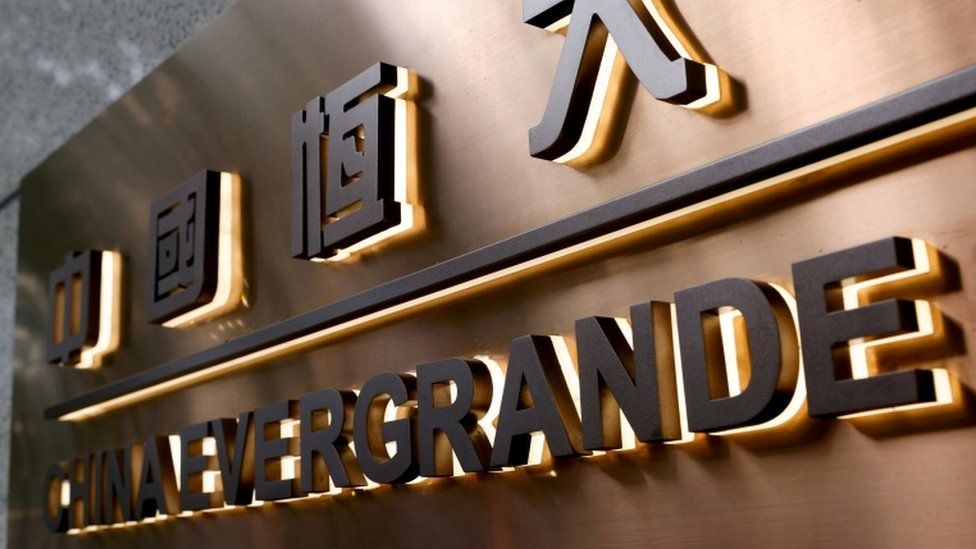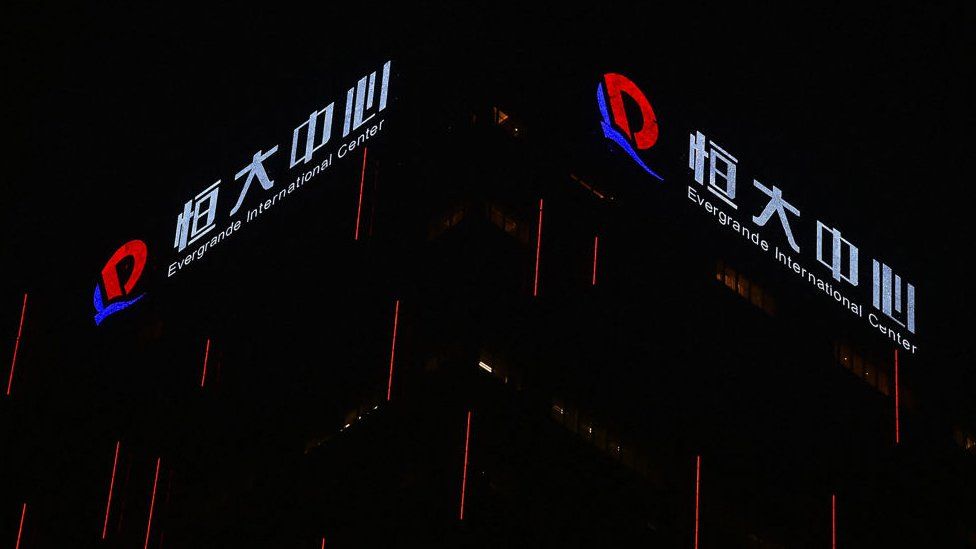Widgetized Section
Go to Admin » Appearance » Widgets » and move Gabfire Widget: Social into that MastheadOverlay zone
Evergrande: China’s efforts to contain its Lehman moment
This article is originally published on BBC.com
When the world started to take notice of Evergrande’s $300bn (£226bn) debt crisis earlier this year, some asked whether it would become China’s “Lehman moment”.
Since then it has become clear that Beijing is handling the situation in a very different way to how Washington dealt with the bankruptcy of investment banking giant Lehman Brothers at the start of the global financial crisis in 2008.
After Evergrande announced that it may not be able to meet all of its financial obligations, the crisis-hit firm defaulted on some of its overseas bonds.
It has now reportedly entered a debt restructuring process with Chinese authorities that may include the sale of some of its founder’s personal assets.
“It is opaque but when we speak to our industry contacts in China, no one is surprised,” said Vinesh Motwani of Silk Road Research.
“The biggest difference between the two is that Evergrande was a train wreck that everyone saw coming,” said Mr Motwani, who was working in the US as an analyst at Credit Suisse when Lehman collapsed.
“When the ‘three red lines’ policy was announced more than a year ago, it was clear that Evergrande was one of the worst offenders, so the reaction in China was ‘this was a long time coming’.”
The “three red lines” are a set of debt thresholds that severely limit the ability of certain property developers to borrow. For decades the sector had seen uncontrolled borrowing, something the China’s central bank, the People’s Bank of China (PBOC), described as “reckless”.
Evergrande’s crisis is a “grey rhino” event, a term used to describe a slow-moving obvious threat as opposed to a surprise “black swan” occurrence, according to Rory Green, the Head of China and Asia Research at investment advisory firm TS Lombard.
“The warning about Evergrande has been going around for a very long time so none of the bondholders should be surprised that they’re defaulting,” he said.
Another major difference between the collapse of Lehman Brothers and the Evergrande crisis is that when the US government needed to act, it had to pass legislation in order to have the authority to intervene but the Chinese government does not have this problem.
By controlling the country’s property market through state-owned banks, Beijing also knows which developers are likely to default – something that could not have been said about Washington during the subprime mortgage crisis.
At the same time, China is being far more selective with its actions than the US was during the global financial crisis. Unlike Washington which bailed out some of the world’s biggest banks, China’s Communist Party is taking a more piecemeal approach.
“Beijing is like a surgeon operating on a tumour who is thinking ‘what do I need to save?’,” said Alicia Garcia Herrero, the chief economist for Asia-Pacific at investment bank Natixis.

The luxury yacht “Event”, reportedly owned by Evergrande’s founder Hui Ka Yan
Image Copyright: Getty Images
For the Chinese government, it is crucial that Evergrande’s day-to-day operations remain intact. It aims to ensure the company can finish the homes it is building so that ordinary property buyers are not affected and trust in the property market is not seriously damaged.
As Ms Herrero puts it: “Beijing also needs to be looking at the heart, if it is still beating. That’s people’s perceptions of the property sector.”
So far, this approach seems to have limited the impact on the housing market, according to Mr Motwani: “Actual property prices are still up year-on-year. Even where they have fallen month-on-month, they are not down by double digits.”
But there are concerns that if prices continue to fall, potential buyers may put off purchasing new homes – which would further slow down the market.
Experts predict Evergrande’s restructuring could take months, if not years, with little in the way of headline-grabbing announcements as authorities try to avoid the kind of shocks that hit the global financial system after Lehman Brothers collapsed.
Mr Green points to past big Chinese business failures. Using the implosion of insurance and financial giant Anbang as an example, he expects Evergrande’s restructuring to be a long process: “Anbang went into restructuring two years ago and it is still ongoing. Evergrande is much bigger so it could take years. But in my opinion, the worst funding condition has passed.”
“The most likely scenario is for Evergrande to be split into separate units. It will be the cutting up of the grey rhino and regional banks will be tasked to deal with those separate units to ensure the stability of the sector and the economy.”
While Evergrande missing offshore bond interest payments may not have triggered a financial meltdown as they are mostly held by wealthy overseas investors, some analysts are concerned about the impact on the Chinese property sector’s reputation.
“It definitely hurts the faith of international investors in China’s offshore real estate bonds,” said Jackson Chan from financial markets research platform Bondsupermart.
Crucially, it has made it much more expensive for Chinese property developers to borrow money from international investors.
What remains to be seen is how Beijing strikes a balance between continuing its strict property market policies and the risk of the country’s massive real estate industry losing access to affordable foreign investment.




